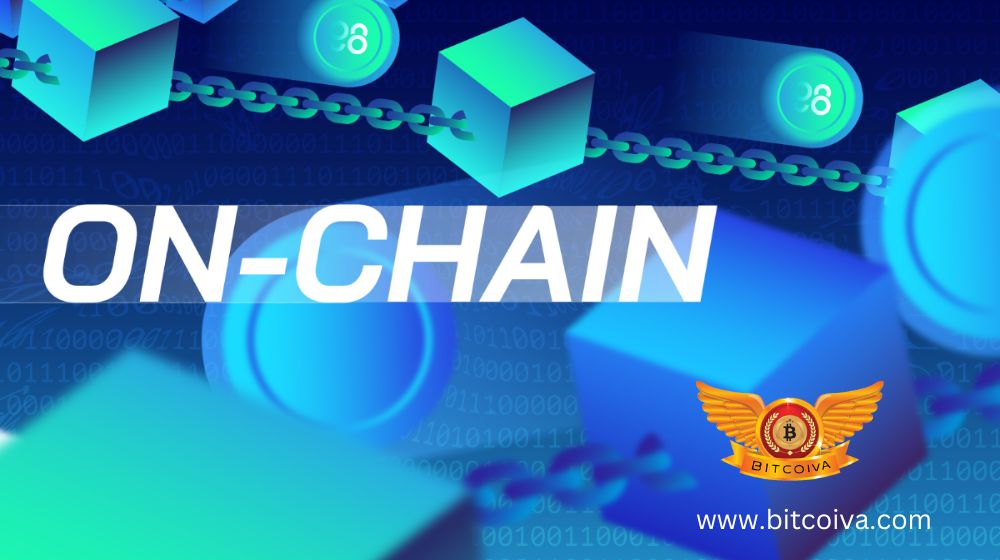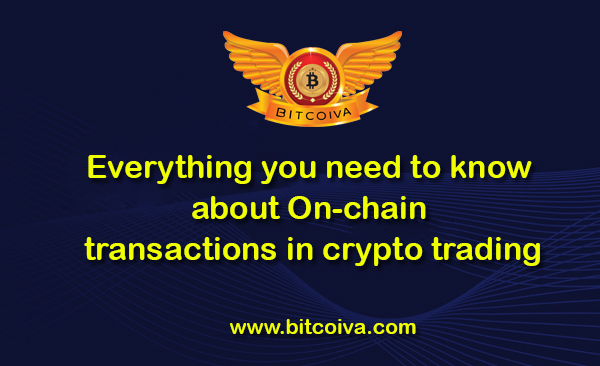On-chain transactions are transactions that take place on the Blockchain. It is the more popular of the two transaction types and requires an upgrade to the blockchain network.
An on-chain transaction requires a specified amount of miner confirmations to be completed. Network congestion affects the time it takes to complete an on-chain transaction. As a result, transactions may be delayed if there is a large volume of transactions to be confirmed. However, if you want them to finish sooner, you can pay a higher fee. These are only implemented when more than 51% of the network’s participants agree that a transaction is correct and the ledger is fully updated (and irreversible).
On-Chain Transactions: An Overview
This On-chain transactions takes place on a blockchain and records in a distributed, public ledger. On-chain transactions are those that have been verified or authenticated and result in a change to the blockchain network as a whole.
Crypto exchange India that run on a blockchain, transactions must be authenticated by a number of the network’s participants, known as miners. A transaction is only valid once all participants have verified it and reached an agreement on its validity. The transaction information subsequently written to the block and sent to the network’s members.
Once a transaction receives enough confirmations from network participants based on the network’s consensus mechanism, it becomes almost irreversible, depending on the network protocol. It can usually only be reversed if a majority of the blockchain’s hashing power agrees to reverse the transaction.

On-Chain Transaction Timing
To keep blockchain transactions secure, verifiable, transparent, and quick, on-chain transactions should take place in real-time. In fact, however, this is rarely the case. Before verifying a transaction, on-chain transactions can take a long time to acquire enough verifications and authentications from network members. Additionally, each time a block transaction adds to the blockchain, miners must validate the transactions by utilizing computers to solve complex math problems.
If the transaction volume is high or the network is congested, it may take the miners longer to validate all of the transactions, especially if the number of miners is limited. As a result, the other parties to the transactions will have to wait for a resolution. Participants may, however, have the option of paying a transaction charge to expedite the validation process. On-chain transactions may allow quick settlements during the early stages of a blockchain when transaction volume is low. New network protocols and cryptocurrency India geared at delivering quick settlement are becoming more widely accepted.
On-Chain Transactions Benefits
By far the most secure database ever created is Bitcoin’s Blockchain. Bitcoin has never been hacked, forged, or spent twice on the Blockchain in its 12 years of existence. The Bitcoin network is also incredibly dependable. Bitcoin has enjoyed a 99.986 percent uptime since its inception, and a 100 percent uptime since 2013, suggesting that the top cryptocurrency in India bitcoin network has never gone down or been inaccessible. Even among the world’s best IT companies, these levels are unsurpassed.
When you trade on-chain, you get this level of security and dependability. Once your transaction adds to the Blockchain, you may rest assured that no one will be able to change or reverse it. Any other monetary system could not provide such guarantees.
Visit us at: www.bitcoiva.com


Comments are closed.